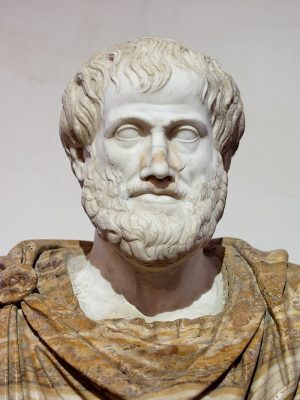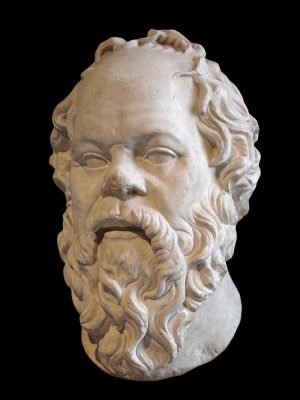Socrates and Aristotle are two great philosophers who lived in ancient Greece. Aristotle was a student of Plato, who was a student of Socrates.
Socrates’ death and Aristotle’s birth are separated by less than twenty years, but some differences can be seen between the two philosophers’ ideas. Socrates believed more in fatalism and an almost strict set of values, while Aristotle emphasized humans’ power of choice and multiplicity.
Fatalism versus Freedom of Choice
In Plato’s dialogues, Socrates is portrayed as a believer in fatalism and determinism. As Socrates was a man of principles, he not only talked about his philosophy but also lived his life around it. When his trial came, he accepted his fate and calmly obeyed the death sentence. His death sentence was brought about by his criticisms of democracy and the flawed accusations hurled against him by demagogues. Nonetheless, Socrates calmly resigned to his fate because he believed he was destined to meet his end in this manner.
On the other hand, Aristotle believed in an individual’s power of choice in influencing political events. When he experienced political persecution in Athens after the death of his student, Alexander the Great, Aristotle escaped from the city. He did not want to be executed like Socrates.
Solidarity versus Multiplicity
The two philosophers also differ on whether unity or diversity is more important to the state. Socrates believed that a unified citizenry ensured the survival of the state, adding that censorship and monitoring of citizens are vital to the preservation of his ideal aristocratic government. Aristotle steered away from this total control of the citizenry. He felt that competition, and differing opinions among the people were more conducive to the state’s cohesion. Unlike other thinkers, he did not feel the need to pick the best form of government. He said the best form of government depends on the conditions that society is living in. Aristotle asserted that a government that combines aristocracy, democracy, and oligarchy has the best chance to preserve itself because it has the most efficient system of checks and balances.
On the Best Form of Government
Socrates theorized that the most stable form of government is an aristocracy or that which is ruled by a king. However, he clarified that the king should be knowledgeable in the affairs of managing a state and not just a demagogue who rose to power through skillful public speaking. He idealized that the perfect government’s king would be supported by warriors and by ordinary citizens and called it Kallipolis, which means “best city.” Socrates added that in this ideal city, his philosopher-king is not allowed to have a family or a chance to accumulate wealth because he should not have any other worries except the affairs of the state. Socrates only allows ordinary citizens to lead a normal life with wives and children.
Aristotle explains that if there is a family or an individual that possesses excellence, then that family or individual is best suited to lead a monarchy. However, Aristotle admits that corruption may turn a monarchy into the worst form of rulership, which is tyranny. Aristotle adds that, theoretically, aristocracy is the second-best form of government. Although in real-world politics, he favors a constitutional democracy, wherein qualified and knowledgeable citizens rule with everyone else’s approval, and the poor and the rich acknowledge their respective rights.

